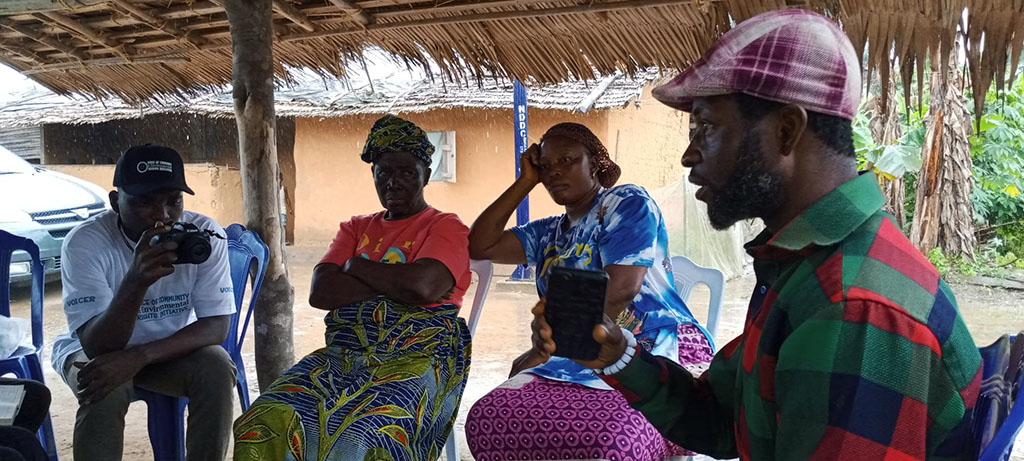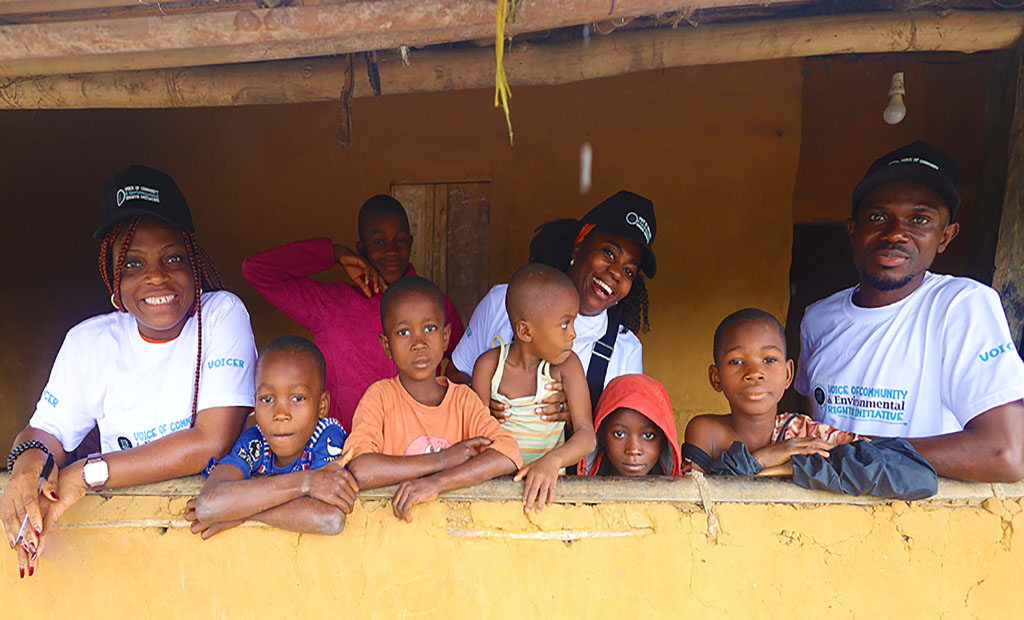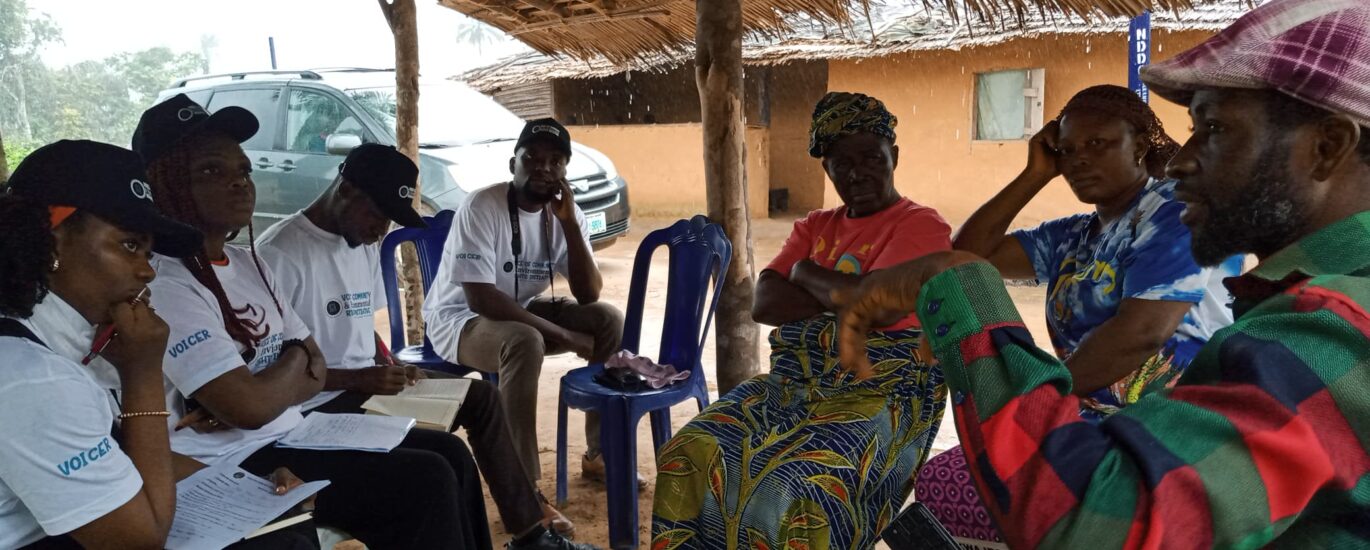To ensure the successful implementation of the Community Health Intervention Project activity through the support of community leaders and inclusivity in program planning, the VOICER team conducted a community entry/needs assessment visit at Ikot Ntuen community in Onna LGA on the 26th August, 2025.
The activity was held at the Palace of the Community Leader, having in attendance the village head, Etteidung Ubong Ekanem Tom, wife of the village head, Obongawan Mary Ubong Akwaowo, Women Leader, Grace Ekanem Tom, and 5 VOICER Staffs.
During the activity, the VOICER Programs Manager, Abasifreke Itohowo introduced the organization, stating its vision, mission and thematic areas. She also introduced Seadove Generale Surveillance Limited as the funding partners of the Community Health Intervention Project (CHIP), emphasizing on their commitment to give back to their local communities of implementation through CSR. She stated the objectives and key activities on the project, soliciting for community participation and collaboration in identifying the needs of the community for robust program planning and sustainable intervention.

The Village Head of Ikot Ntuen community warmly welcomed and received the VOICER team, stating that the community will be happy to have any meaningful and impactful health intervention projects by the organization and also stated that it is going to be the very first time the community is benefiting from intervention or assistance from NGO or any independent organization apart from State Government. The community stakeholders shared the community’s peculiar challenges to include:
- Lack of good access road to the community
- Lack of portable water in the community as their primary source of water stream which has been contaminated due to oil exploration activity, only one well-drilled borehole which functions only on Christmas.
- Unavailability of secondary school facility in the community; Thus, children trek very long distances to other communities to attend secondary school. The community has a primary school that is not equipped.
- Unavailability of school Reading and writing materials like textbooks for school children, most children finish school without seeing what a textbook looks like.
- School children are faced with hardship like lack of food.
- Health challenges are mostly Typhoid, Fever, Eye problems, High Blood Pressure, Elephantiasis, Ulcers, Malaria, Severe Cold due to vegetation.

The community leader shared effort he had made to ensure that community members have access to a better quality of life such as: Supporting PWD’s with food, houses, etc., ensuring that school facility is secured to avoid vandalization of school properties by paying security personnel to secure the school premises, bring in health workers for immunization and health care and also conduct a step down education on whatever he learnt during GBV sensitizations for community leaders to boost community inclusion.
The community leader expressed his concerns in building a sustainable community by addressing the challenges peculiar to the community. He appealed to VOICER to assist in addressing the key challenges faced by the community where possible, so that the people can have an improvement in the quality of life and sustainable development.
- Provision of water treatment Tabs and WASH education
- Provision of educational materials for school children.
- Health Intervention project
- Food support
- Introduction of sustainable and innovative agricultural practices to help the community produce more food locally.
- Provision of secondary schools in the community so the children can receive education without trekking miles.
- Provision of Health Post in the community.
Stay with us for more…


